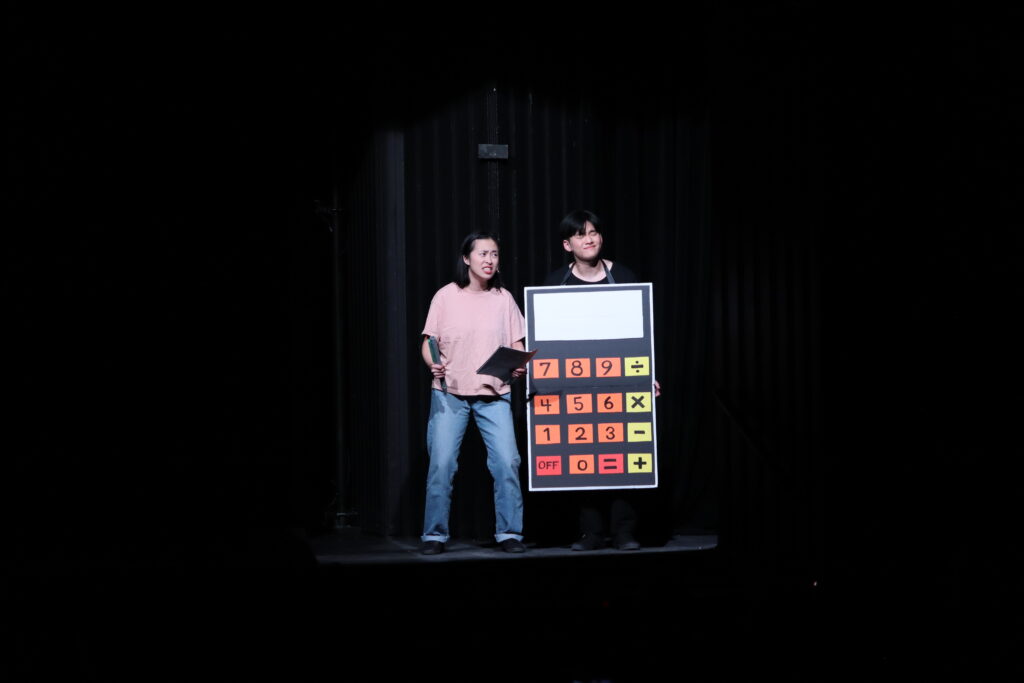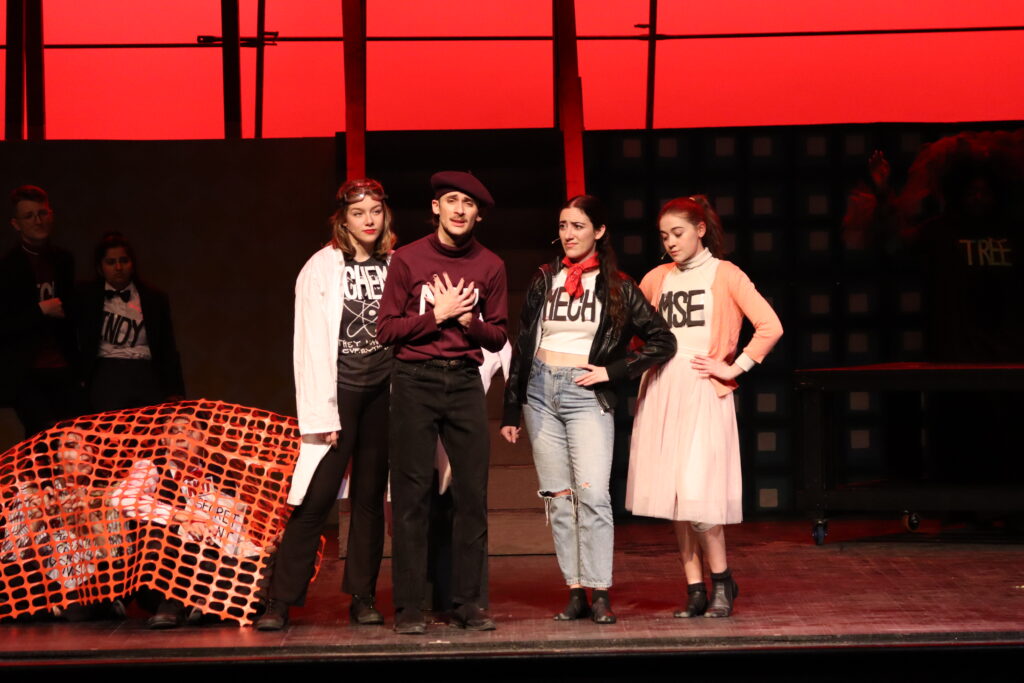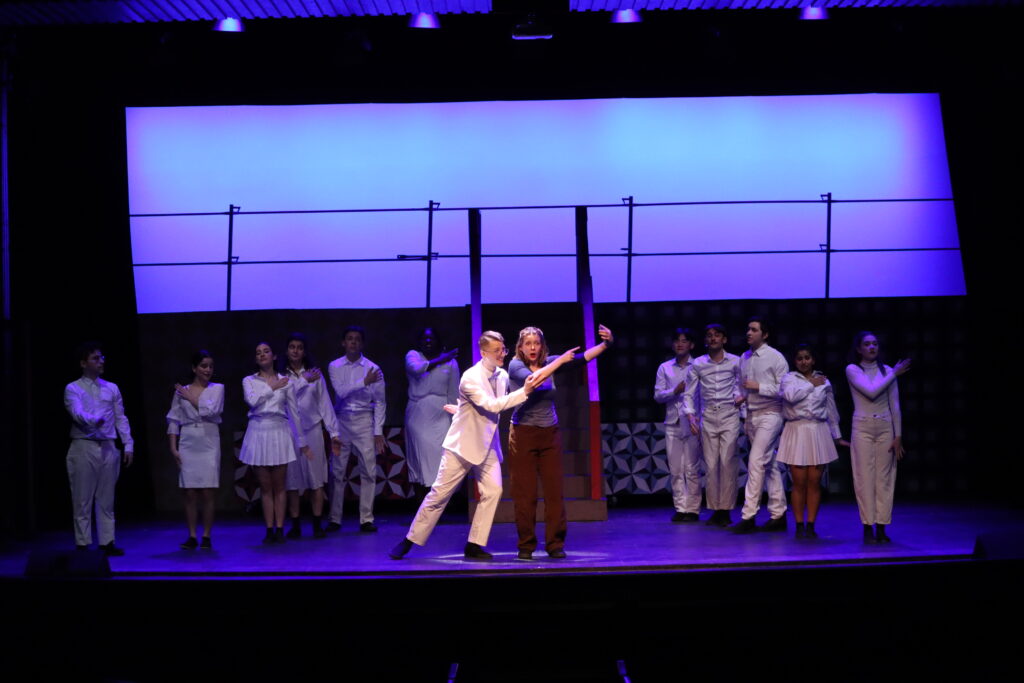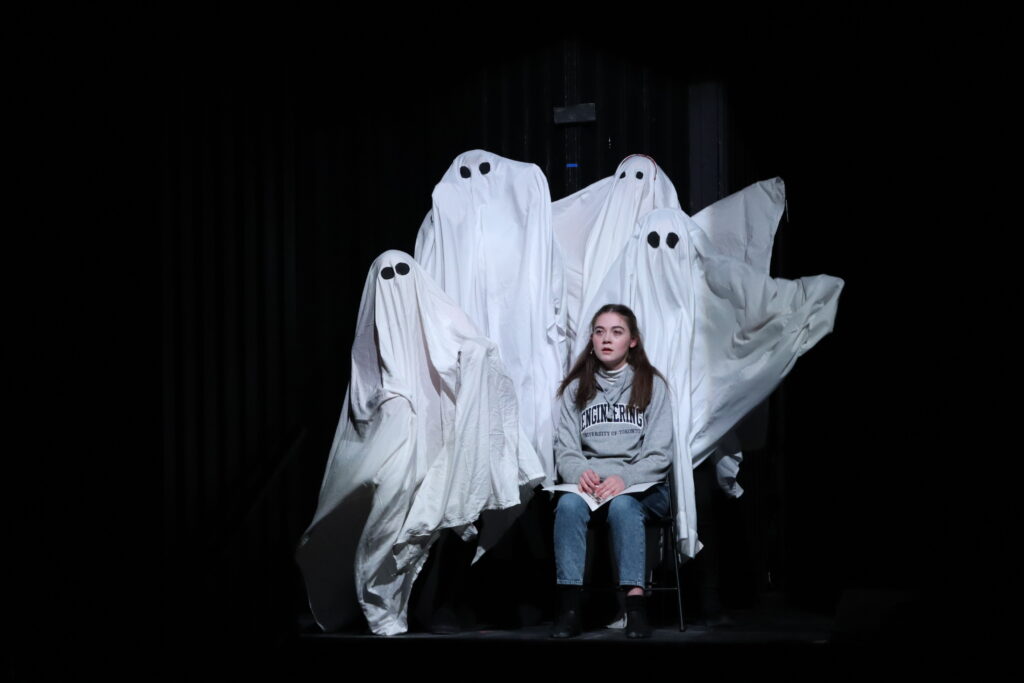By Katarina Zeni
A mix of nerves and excitement shoot like sparks from fingertips while hot, blinding lights beat down upon the stage. With tears in their eyes, Sophia Bonellos and Mike Cortese join hands and take their final bows with the rest of the cast—savoring the final moments of peace before the chaos resumes.
It’s 2 a.m. when the cast and crew of Skule Nite, the University of Toronto’s engineering sketch comedy revue, finally empty Hart House Theatre of their sets and belongings. What was supposed to be a post-show celebration with friends and fellow engineering students instead turned into a night of heavy lifting and tired eyes.
It’s no surprise that after 60-hour weeks balancing school, jobs and the show, students struggle to keep up. Though they expected the production would be hard work, students faced additional challenges this year—a cast member dropped out at the last minute and the administration cracked down on accommodations—leaving them concerned for the future of the show and their academics alike.
Skule Nite—a play on words drawn from the name of the university’s engineering society “Skule”—is the intersection of many fine art extra-curriculars offered at the U of T. Bringing together orchestra, visual art, drama, dance and more, students tap into their creative side, writing songs and skits that poke fun at their busy and stressful lives as engineering students.
Lydia Wilkinson, a professor at the University of Toronto who is pursuing her doctorate, has seen the creativity behind the show in real time. She chose Skule Nite as a research site for her dissertation, “Engineering in the Humanities: Intersections,” and has engaged with the show since 2015.
“It’s this huge commitment and time-consuming thing, but I could see countless skills being developed,” she said.
Watching the individuals of Skule Nite over the course of the year, Wilkinson saw identities being formed as students worked together. Whether acting, leading a crew or building sets, she said students began to understand their roles as future engineers. She said that even though the show has the potential to get in the way of academics, it’s a learning opportunity in itself.
This year, which marked the show’s 102nd anniversary, a cast and crew of about 100 people put on 30 skits and eight musical numbers—and the students who wrote and performed them drew from their own intense experiences.
On stage left, a fearful engineering student performs “An Exam Carol,” surrounded by the ghosts of exams past, present, and future as they taunt her about her upcoming test.
“On this exam, there will be … math!” echoes the ghost of exams future—a line poking fun at the scant information students are given on exam outlines.
For most students, Skule Nite becomes a full-time job on top of their already challenging 40-hour a week academic programs. Having been in the show six times, director Emily Macdonald-Roach was used to the show interfering with schoolwork—but this year was different.
The show occupied Macdonald-Roach’s thoughts at all times—including her dreams. “I call them Skule Nitemares,” she said laughing. There was an underlying nervousness to her tone, however, as one had just come true.
Only a month before opening night, one of the main cast members quit the show. For Macdonald-Roach, who was in her first year as director, the departure was overwhelming. She replaced the former cast member in skits while worrying about his well-being. Leading such a large group means ensuring everyone has support to take on extra work, but situations like these are inevitable.
For Skule Nite participants, the work never comes to a halt—especially close to the show. With rehearsal every other day from 6 a.m. to 2 a.m. the week before opening night, students need ample time, which means missing classes and potentially exams.
In order to avoid conflicts, the U of T allows students to request exceptions to assignment deadlines and exam dates under certain circumstances, known as submitting “petitions“. This form of accommodation typically involves moving deadlines or combining the weight of a missed exam with a later one.
Though petitioning has been the saving grace for many Skule Nite participants in the past, an email sent to cast member Mike Cortese in March threatens its dependability. The university emphasized the strict rules for petitioning while urging students to focus on academics.
“Moving forward only coursework that directly conflicts with the exact date and time of the live show will be considered for accommodation,” said the email from the undergraduate office of mechanical and industrial engineering.
While finding out all of his accommodations were accepted, Cortese said the school’s flexibility in granting petitions to address the demands of the show appeared to be wavering. Though a representative for the school said it has always taken this approach when considering petition requests, cast members Sophia Bonellos and Mila Damjanović say they aren’t that lenient.
Despite asking for accommodations one to two months in advance, five first-year Skule Nite members had their petitions denied and had to take an exam a few hours before the show.
“It’s not even like we sent the petitions late … it was shocking,” said Bonellos, one of the students whose requests were denied. “I heard they were really accommodating during the pandemic, but now that we’re back in person, I think that’s over.”
Despite not knowing what will happen in the future, she still plans to take part in the show next year.
From having other students to bounce homework questions off, to making friends who understand your stresses and struggles, there is a community within Skule Nite that can’t be replicated. The support is what keeps these engineering students grounded—so much so that many return to the show after graduating to experience it again.
Though some take on recurring roles in the cast, other alumni like Stephanie McDonald, a recent graduate and director of last year’s show, came back to offer support. After six shows, she returned proudly as a fossil—the designated name for Skule Nite alumni.
Having done it all before, McDonald spent her time helping with vocal direction and school-related questions, especially in weekly calls with Macdonald-Roach, which gave this year’s director a space to relieve some stress.
With so much time spent on campus for the show and school, many students involved in the production see their family only on holidays. Looking back, McDonald recalled one of the first things her mom asked when she graduated: “So does this mean that you’re done with Skule Nite? Do I have my daughter back?”
“That broke my heart a little bit,” said McDonald.
Back on the stage, as the cast of Skule Nite 2023 took their final bows, Cortese looked out at the people taking this journey with him—some of his best friends—and knew that if it wasn’t for their support and understanding, he probably wouldn’t still be in the engineering program.
“It’s really difficult but you’re surrounded by people who have done it before and you kind of realize like, ‘Oh—I can enjoy myself, there is a light at the end of the tunnel’.”
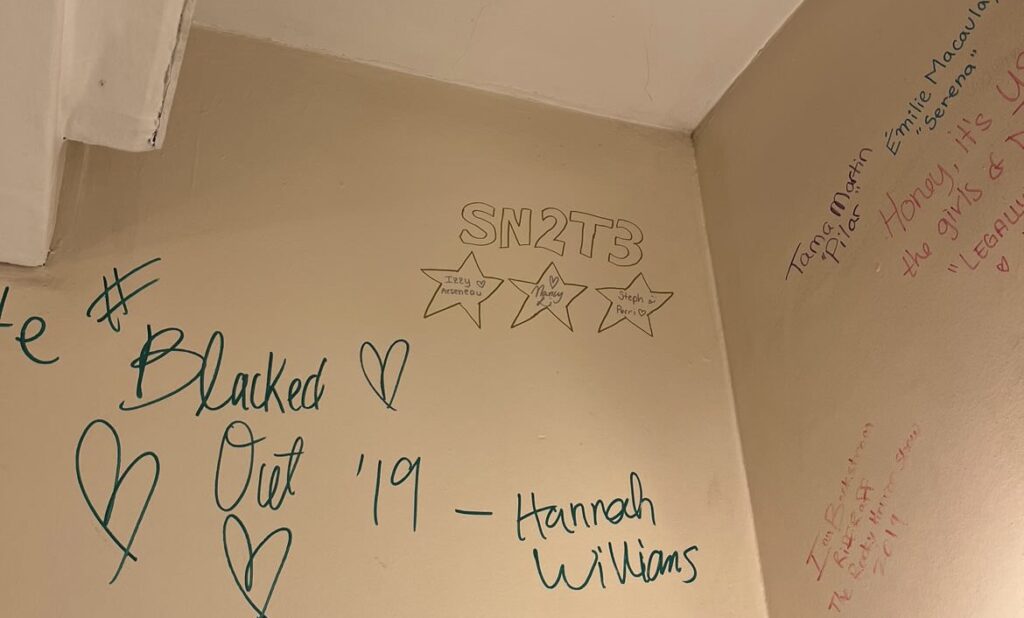 Every year, participants of Skule Nite write their names on a wall in a dressing room of Hart House Theatre on the University of Toronto’s campus. (Nancy Li/Skulenite)
Every year, participants of Skule Nite write their names on a wall in a dressing room of Hart House Theatre on the University of Toronto’s campus. (Nancy Li/Skulenite)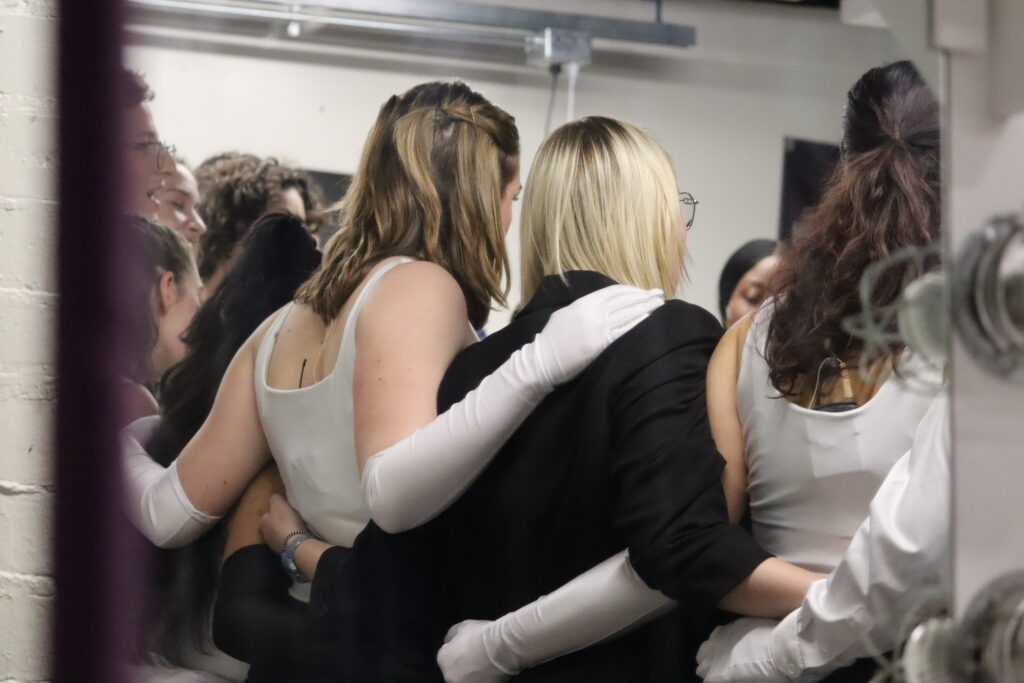 Before the show begins, the cast and crew of Skule Nite form a circle and hug. During this time, a chant and a cheer are done to get the nerves out and energize everyone. (Victoria Zhou/Skulenite)
Before the show begins, the cast and crew of Skule Nite form a circle and hug. During this time, a chant and a cheer are done to get the nerves out and energize everyone. (Victoria Zhou/Skulenite)

